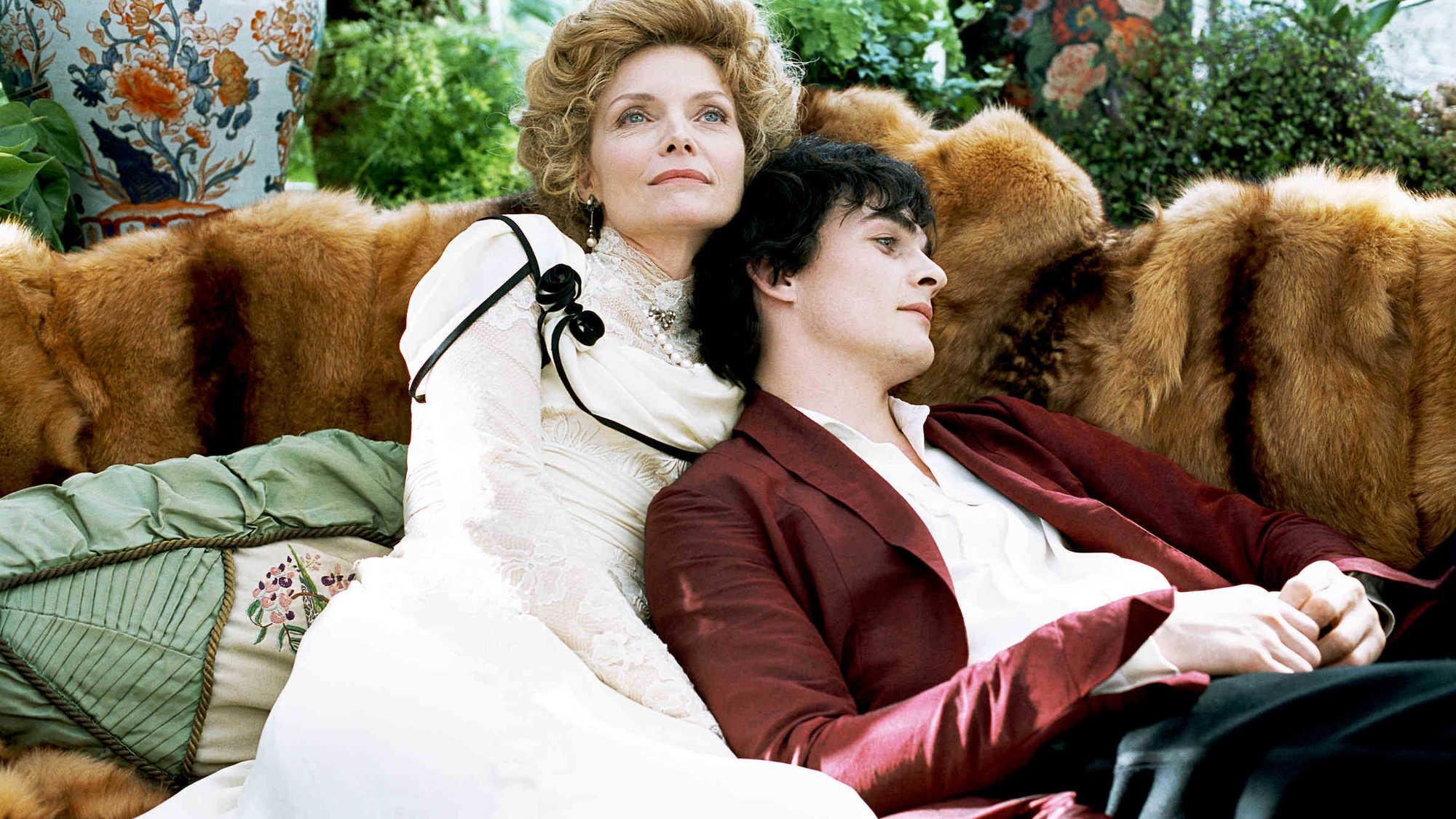Revisiting and celebrating the work of Michelle Pfeiffer, the best actress of my lifetime.
Screenwriter Christopher Hampton has discussed how Michelle Pfeiffer was at the top of his and director Stephen Frears' short wish list for the lead role in Chéri (2009). Pfeiffer loved the script and agreed to team up once more with Hampton and Frears. The threesome had previously collaborated on Dangerous Liaisons (1988). Pfeiffer's performance in that one earned her first Academy Award nomination, for Best Supporting Actress. She was transcendent in that period film, and was again, twenty one years later, in Chéri.
Chéri is an elegant and acerbic mediation on aging, love, and how social etiquette affects both in 1900s Paris. At the center of the film, around which all other aspects rotate, is Pfeiffer, as Léa de Lonva. It's a lovely, nuanced performance as an aging courtesan who finds herself in an unexpected relationship with a much younger man, whom she nicknames Chéri (Rupert Friend). In public, and around her fellow courtesan and frenemy, Chéri's mum Kathy Baker, Pfeiffer shows us how Léa maintains a confident and secure face to the world while exposing her character's barely concealed vulnerabilities with a sidelong stare or a down-turned smile.
As she's done time and again over her career, Pfeiffer opens windows into her character's soul trough deft line readings, delicate glances, and subtle changes in inflection. She thrives in period pieces because she effortlessly pulls off the required self-restraint of the era, while still expressing the heartbreaking vulnerability and sadness that lies just under the surface. It's a lush, beautiful performance that sticks with you long after you've finished watching. The film turns ten this year, and Pfeiffer's seriously underrated performance remains as magical as ever.
Also of note, the role is one of several for Pfeiffer during the mid-to-late 2000s where she was positioned as the older woman in a scandalous or at least eye-raising relationship with a much younger man. Besides this film, there was also I Could Never Be Your Woman (2006) alongside Paul Rudd, Personal Effects (2009) with Ashton Kutcher, and even New Year's Eve (2011), in which she and Zac Efron created a lovely May-December pairing, albeit beyond one smooch a chaste one. As they age into their forties, fifties, and beyond, most actresses are still being coupled with men at least a decade older. With these films, Pfeiffer bucked that trend, bringing real pathos and emotional resonance to stories of women of a certain age finding love or companionship with younger men. Along the way she offered ample evidence that middle-aged women's lives are just as interesting and messy as those of their younger counterparts. Leave it to Pfeiffer to flip the script.



I know sure how I missed this piece first time around, but it is fabulous to be on the same page as you again. It takes an actor of tremendous skill and competence to pull off the layers and subtle nuances that this character demands. Michelle's acting power lies in knowing how to skillfully underplay.
ReplyDelete